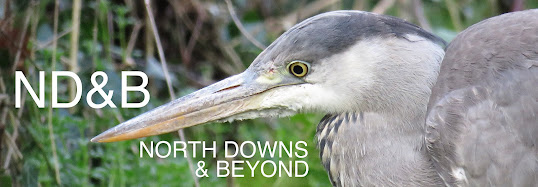What happens to your list when you die?
Chris Janman posed this question when commenting on a recent post. It got me thinking...
I have long advocated the setting up of a system where we can barter our spare species, such as me being able to put up my second Wallcreeper for bids from interested birders. I'd reckon on being offered a right old fistful of rarities in a straight swap for that one, (maybe a Thick-billed Warbler, Black-billed Cuckoo, White-throated Needletail and a whole load of spare Fair Isle semi-rare dross). But what happens to our hard-earned lists when we die? Do they have to stay in a notebook or spread-sheet, hidden from view and gathering dust (real or virtual). Why can't we pass on the value of our lists to those that we have left behind?
In my case I reckon my wife and daughters could encourage avid listers to pay at least £1000 for each Wallcreeper. Maybe someone would buy up both of them to stop another lister from getting them, or use the spare to swap at a later date? And how much is my Varied Thrush worth? Maybe more. Golden-winged Warbler? Got to be at least £750. Maybe a bidding war could be started. And they could be stored, like stocks and shares, to grow in value. This sounds like fun!
And national rarity would not be the end of cashing in on my life list. Surrey listers who have just got into the game in the last 25-30 years would pay top dollar for my (many) Surrey-seen Cirl Buntings and Willow Tits. The Beddington boys would be sniffing around my Beddington-seen Grey Partridges. And my Dungeness list might raise a few bob, especially the two Wilson's Phalaropes that are the only record and were seen by just three observers.
Sounds daft? No dafter than driving 300 miles to look at a grey Common Stonechat :-)
I have long advocated the setting up of a system where we can barter our spare species, such as me being able to put up my second Wallcreeper for bids from interested birders. I'd reckon on being offered a right old fistful of rarities in a straight swap for that one, (maybe a Thick-billed Warbler, Black-billed Cuckoo, White-throated Needletail and a whole load of spare Fair Isle semi-rare dross). But what happens to our hard-earned lists when we die? Do they have to stay in a notebook or spread-sheet, hidden from view and gathering dust (real or virtual). Why can't we pass on the value of our lists to those that we have left behind?
In my case I reckon my wife and daughters could encourage avid listers to pay at least £1000 for each Wallcreeper. Maybe someone would buy up both of them to stop another lister from getting them, or use the spare to swap at a later date? And how much is my Varied Thrush worth? Maybe more. Golden-winged Warbler? Got to be at least £750. Maybe a bidding war could be started. And they could be stored, like stocks and shares, to grow in value. This sounds like fun!
And national rarity would not be the end of cashing in on my life list. Surrey listers who have just got into the game in the last 25-30 years would pay top dollar for my (many) Surrey-seen Cirl Buntings and Willow Tits. The Beddington boys would be sniffing around my Beddington-seen Grey Partridges. And my Dungeness list might raise a few bob, especially the two Wilson's Phalaropes that are the only record and were seen by just three observers.
Sounds daft? No dafter than driving 300 miles to look at a grey Common Stonechat :-)


Comments